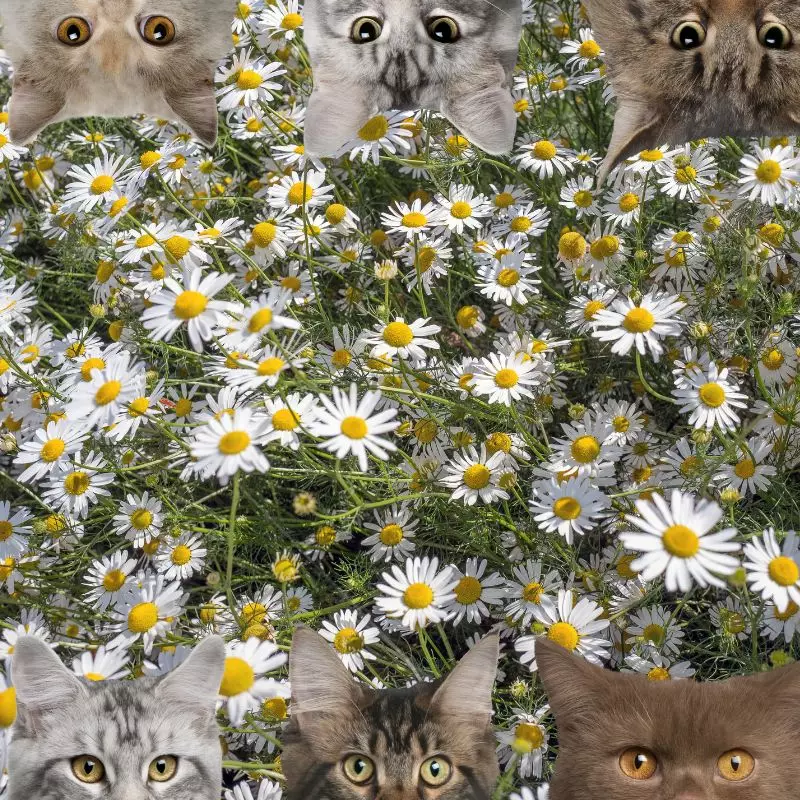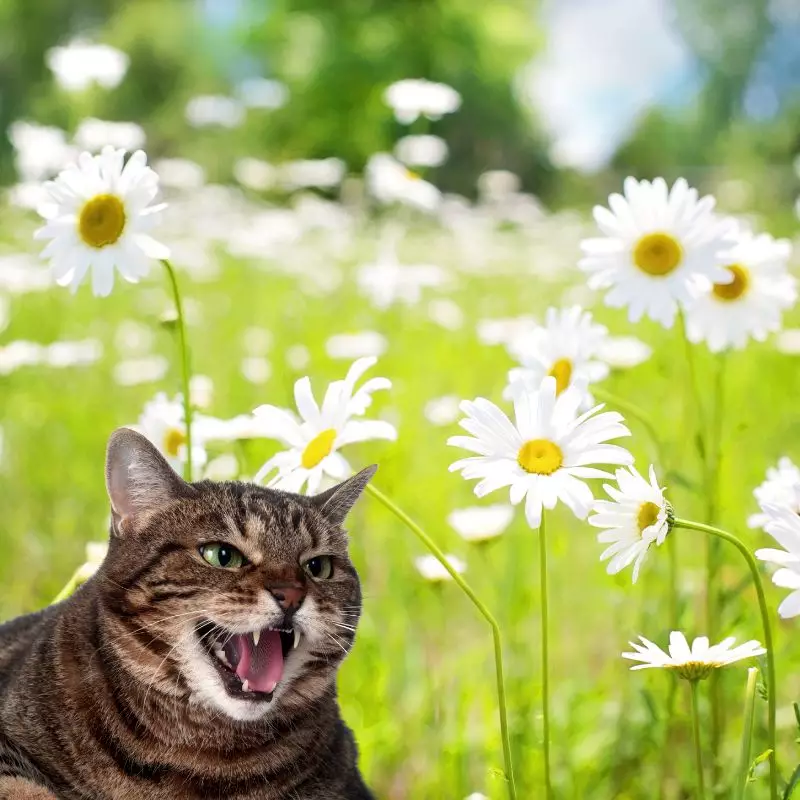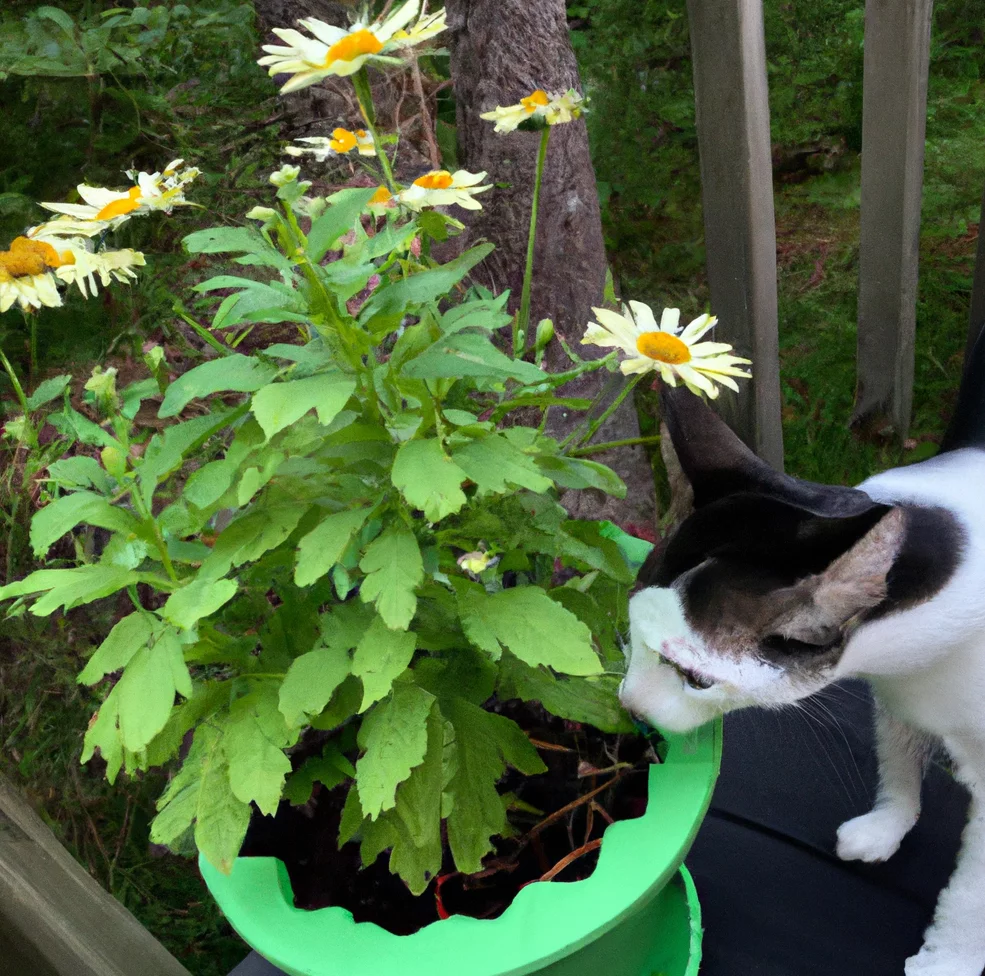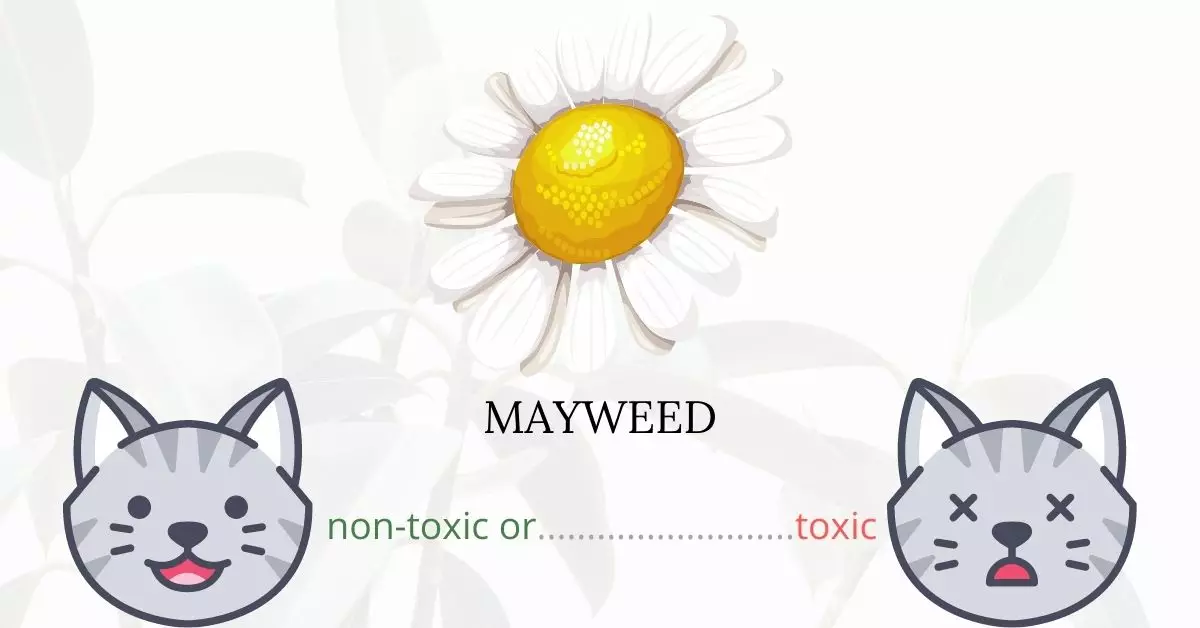Yes, Mayweed, also known as Poison Daisy, is toxic to cats.
This article has been crafted in collaboration with a team of experienced DVMs (doctors of veterinary medicine). Thanks to their insights, we can provide accurate and up-to-date information about the potential risks associated with various plants, focusing on Mayweed in this instance. Our research has been further corroborated by high-authority websites such as the ASPCA and PetMD.
Mayweed is commonly found in locations like roadsides, fields, wastelands, and crops, making cats, especially those in rural areas, more susceptible to encountering it. The plant contains several toxins, including terpenoids, volatile oil, flavonoids, coumarins, chamazulene, and anthemic, tannic, and fatty acids. These substances pose a risk to cats. While life-threatening incidents from ingestion are rare, some of these toxins are known to induce allergic reactions when consumed or when they come into contact with a cat’s skin. Fortunately, the presence of these toxins makes Mayweed unpalatable, which deters most cats from consuming it in significant quantities.
Clinical Signs of Mayweed or Poison Daisy Poisoning in Cats

When cats come into contact with, smell, or consume the Mayweed plant, it may lead to various adverse reactions due to the presence of its toxins. Here’s a breakdown of the symptoms and the reasons behind their occurrence:
- Vomiting: This is often the body’s immediate response to the ingestion of harmful substances. The terpenoids and other chemicals present in Mayweed can irritate the stomach lining, prompting cats to vomit as a way to expel the offending agent.
- Diarrhea: Like vomiting, diarrhea is another way the body tries to rid itself of toxins. Ingesting Mayweed can disrupt the normal functioning of a cat’s digestive system, leading to diarrhea.
- Loss of Appetite: The toxins in Mayweed, such as the volatile oils and flavonoids, can lead to a feeling of nausea or gastrointestinal discomfort in cats. This discomfort often results in a reduced desire to eat.
- Allergic Reactions: Some cats might be particularly sensitive to the compounds found in Mayweed. When they come into contact with or inhale the plant’s particles, it might trigger an allergic response, which can manifest as sneezing, watery eyes, or respiratory distress.
- Dermatitis: Direct skin contact with Mayweed can cause dermatitis in cats. The chemicals, especially chamazulene and anthemic acids, can be irritants, leading to redness, itching, and swelling of the skin where the plant has made contact.
Owners should monitor their cats closely if they suspect contact or ingestion of Mayweed and consult a veterinarian immediately if any of these symptoms are observed.
First Aid and Treatment of Mayweed or Poison Daisy Poisoning in Cats

Although mayweed poisoning is rarely fatal, medication may be required to alleviate the cat’s symptoms and promote a speedy recovery.
After conducting a complete physical check, the veterinarian will begin providing symptomatic and supportive treatment. The process usually involves washing the cat’s oral cavity, administering activated charcoal, performing gastric lavage, and intravenous fluid therapy. The vet may also prescribe medications as needed in your cat’s condition.
Recovery from Mayweed or Poison Daisy Poisoning in Cats

In the majority of mayweed poisoning, cats fully recover quickly. The usual symptoms are only mild and will cease in a few hours up to 24 hours after treatment. Give your cat time to rest as he is recuperating at home.
Prevention of Mayweed or Poison Daisy Poisoning in Cats
Due to the weed’s ability to grow practically anywhere, confining your cat indoors may be the best method to prevent plant poisoning.
It is better to get rid of Mayweed if you see it on your property or in the nearby area before it spreads. Investigate the recommended methods for removing it, and if possible, do so naturally.
If you love plants but have cats at home, check out these lists:





